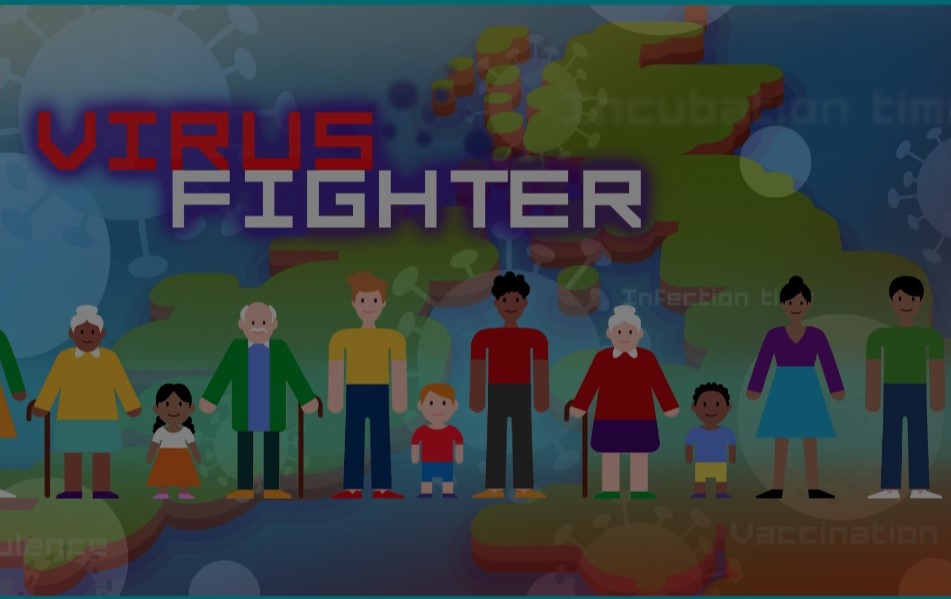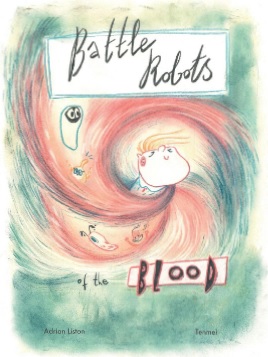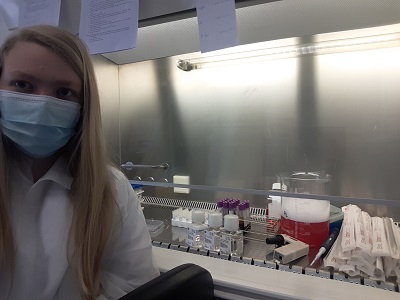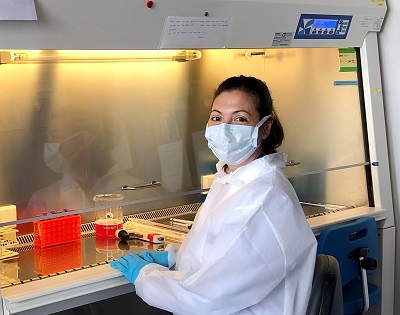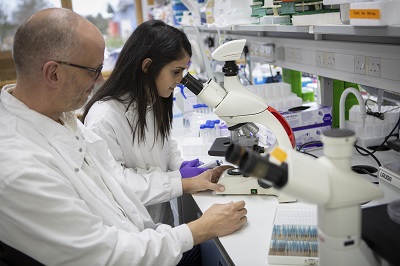My career feedback strategy
 Monday, November 9, 2020 at 11:50AM
Monday, November 9, 2020 at 11:50AM Part of managing staff and students is to manage their scientific progress. Another aspect is to manage their personal growth and career pathway. Often it is easy to forget the latter, so I make sure that at least once a year I have a formal feedback session on management and careers with everyone in my lab. There are five stages to this, and this year it basically took me two weeks (but this is because I am currently still running two fairly large labs, one in Belgium and one in Cambridge).
Step 1: Anonymous survey of the whole lab. Here I use SurveyMonkey, with a series of questions that allow a quantification of satisfaction in different aspects of lab culture. I focus on questions that measure trust and happiness in the lab, like whether people plan to keep in contact with each other after graduation, how well they feel lab duties are balanced, etc. This is useful to get a bird's eye view of lab culture, which is otherwise biased towards the more vocal lab members. It is important not to get hung up on every negative answer - just because 100% of the lab isn't happy in every aspect doesn't mean you are doing things wrong. Instead it should be more of a comparative indicator. Are people more happy with the lab than the institute or vice versa. After a couple of years it also lets you do longitudinal comparisons - are problems being fixed after identification? Here is the list of questions that I used this year, and the answers of my Cambridge lab:

My interpretation: when people's biggest complaints about about seminars and journal club, then you have a healthy lab. We are also fortunate that this year there are many options for online seminar series of very high quality, so alternatives are available.
In the survey I also include a section allowing free-form answers to certain questions. It is more biased (few people answer them all), but also carries more information. This year those free-form questions were:
How should we run lab meeting?
How should we run journal club?
How could lab duties be better assigned, and are there new duties that need to be added?
Long-term, what new skills should we look at developing?
In our science headed in the right direction?
How much productive time did I lose due to COVID?
What new practices, put in place because of the lockdown, should we keep afterwards?
What extra changes should we make for the upcoming six months, to reduce the impact of partial lockdown?
What extra equipment would be nice to have in the lab?
Any other feedback?
Ideally, these would be addressed in the personal feedback (see below), but it is good to have the option for confidential comments.
Step 2: Individual self-evaluation from each lab member. Here I ask everyone to reflect on their strengths and weaknesses, their achievements and ambitions, things that they could have done differently and things that I could have done differently. I generally ask the same questions every year, although this year I had an extra section on how COVID affected them. I make sure to tell people upfront that this is not an official evaluation, it is a self-reflection piece. This is the form I ask them to fill out. This is a really valuable exercise for several reasons:
1) It gives people a time to reflect on their past year and their following year, to contemplate their future career
2) The questions are designed to focus around problem-solving, rather than blame assigning. What can you do to improve your chance of achieving next year's goal? What I can do to help you achieve this goal? Simply getting people to consider their own agency can be the push that is needed to solve problems
3) It let's me know what their goals are, for your next year and your career. The more information I have on where you are going, the more useful my mentoring will be
4) It let's me see how closely aligned their self-evaluation is to my evaluation of them. The biggest management problems arise from unaligned evaluations of skills. If someone is convinced that they are an excellent communicator and you think they are a poor communicator, then that needs to be resolved. Likewise if someone feels like they are behind in their PhD and you think they are ahead of where you expect them to be, that also needs to be resolved. Which brings me to:
Step 3: My written comments on their self-evaluation. Here I go through their evaluation and put down my comments. Where they list their strengths I highlight the ones that I agree with, and I mention strengths that they forgotten. Where they list their weaknesses I comment on weaknesses that I agree need to be fixed, with a proposed strategy, or I'll explain why I don't think the person is actually weak in that aspect, and perhaps it is more an issue of self-confidence than a real weakness. I'll comment on their key achievements, and mention extras that they may have forgotten. I'll discuss their proposed pathways to improvement, oftening higlighting just one for them to focus on in the next year (trying to do everything is not a great approach). I'll reply to where they ask for help, either promising that they will have it, or explaining why that particular suggestion is not suitable and proposing an alternative. I'll comment on their career plans, whether or not I think they are on the right track to achieve them and how they should go about preparing for the next step. I am always honest - I don't see any value in helping a post-doc deceive themselves that they are on the track to independence if they are not - but this does not need to be cruel. It is more about exploring whether or not they actually want to be on that track, explaining what needs to change for them to move onto it, or explaining the alternative track that they may be moving towards without being aware. I make it a point to be positive (especially with people who have under-estimated themselves, a more common phenotype than over-estimation). I also make it a point to recognise where my failings contributed, to take responsibility for this and to commit to a change in myself. Even if that is as simple as "I should have stepped in earlier", it leads by example in taking responsibility for your actions.
I like to give written feedback, even though I'll have a face-to-face meeting afterwards. It gives me the time to organise my thoughts. It lets me read and re-read to see if I struck the right tone. It means I go through all the points on the document. It also lets my staff read and re-read the comments. Sometimes things become emotional in feedback meetings, and your perception of what is being said is changed by the emotional context. You focus in on negatives and forget the positives.
Step 4: A face-to-face meeting. Here there is a follow-up meeting. Usually I don't go through the document - we've both seen the self-evaluation and my comments. I insist on no science at this meeting, it is all about them, our relationship and their career. Often I'll focus on just one aspect that I think is the most important. The meetings usually last thirty minutes, sometimes out to two hours each. Most common themes:
Junior PhD student, learning what a PhD is. Yes, you are on track. You really are. It is normal that you feel like you are not. Of course you don't know everything you need to know, you are here to learn.
Senior PhD student, looking at their next step. Should I stay for a post-doc? Should I write a fellowship? Should I move to industry? You should make a decision based on interest, not based on fear. If you are more interested in industry, go there. Here is how to start building your industry-entry plan. But don't move to industry because you are scared academia is too tough.
Junior post-doc, scared to ask for help. I know you were on top of your game at the end of your PhD, but that doesn't mean you start from the same place in a new lab on a new topic. Science is constantly learning. You need to communicate. If something isn't working, don't hide it until it works. Talk to me. Failure to talk can make our relationship non-functional, and doesn't help anyone.
Senior post-doc, looking at an independent position. Okay, let's look at the facts. How mobile will you be? What are the options available to you and your family? What are the timelines of applications? How early will you need to send me drafts to have sufficient time to address my feedback? Who can I network you with? What do we need to work on with training sessions?
Expecting parent. Alright, let's be realistic here. It is going to be brutal being a new parent. This was my experience. No, you are not going to be able to get X, Y or Z done while on parental leave. Organise everything and we'll get someone else to cover you - but it is up to you to organise things in advance. Samples, folder structure, design of experiments - they need to be able to access everything. When do you get back? Again, let's be realistic and assume you are functioning at 50% productivity for the year after that - anything extra will be a pleasant surprise. Better to finish one thing than leave ten partially completed. Make sure to establish good equal co-parenting from day one!
Super-scientist with crippling self-doubt. You are great, you really are. I know that it is hard to see your success in yourself. I spend half my time in a state of career anxiety, even after a great paper comes out. Sometimes it is just hard to trust your own judgement, and science constantly focuses in on the negatives. If you can't trust your judgement at the moment, trust mine. You're great.
Step 5. Follow-up! Meetings need actions and behavioural changes to follow. Follow-up with them, make sure that they are putting their actions into place. Follow-up on yourself, check that you are meeting your own commitments. Check-in with them as to whether their goals are changing, especially after big events (that confidence boost from a publication might make them reconsider academia, that tech-transfer conference might have swayed them towards industry). Your relationship with your lab is a work in progress, not a tick-box once a year.
 science careers
science careers 